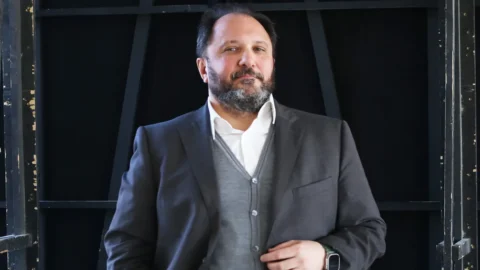Not just politics and trade unions. The reforms of the caretaker government arouse some perplexity in the world of caretakers themselves. In particular, of course, the intervention that more than any other in recent days is fueling the controversy: the pension reform.
“The Italian pension system, despite the reforms already introduced, is not socially sustainable in the medium-long term and requires urgent interventions in order not to burden the future pensions of the younger generations”. This was the alarm raised by Giampaolo Crenca, president of the National Council of Actuaries, during the conference that took place today in Rome, at the INPS headquarters, for the Day of Pension Actuaries.
FIRSTONLINE – President Crenca, given the situation, what is your opinion on the pension reform that is being put together?
CRENCA – These are important interventions, but Italy still lacks a true structural reform, one that truly operates in the sense of an overall revision of all sectors, of basic and supplementary social security. So far we have seen many pills and little medicine. The goal we must aim for is a decent replacement rate. We need to arrive at a package of interventions that are able to hold over time, without stopping at the commercials of recent years. A system with uniform rules is needed: today there are too many differences between rates, treatments and rules.
FIRSTONLINE – And what about individual measures? For example, so far the only real certainty seems to be the extension of the pro-rata contribution.
CRENCA – We can even agree on individual interventions, but be careful. The transition to the pro-rata contribution increases sustainability, but at the same time creates a problem in terms of the replacement rate. In any case, the real problem is to deal with the various problems at the same time to arrive at a real overall restructuring that makes the system sustainable over the long term.
FIRSTONLINE – But Europe and the markets are asking to hurry…
CRENCA – And then let these interventions be made. Afterwards, however, we all get together around a table to find structural measures capable of withstanding 30-40 years. From our point of view, for example, the earlier linking of the retirement age to life expectancy, a measure launched this summer, was a very positive measure, but it was not part of an overall structure that met the needs. If this goal were to be achieved, among other things, the need to periodically resort to the policy of cuts would disappear.
FIRSTONLINE – However, this reform has been criticized not only from the point of view of quantity, but also from the point of view of quality. There is talk of the possible depressive effects of a possible block on the adjustment of pensions to inflation.
CRENCA – Of course, the annulment of the automatic equalization would really be one of the heaviest measures. The risk is obviously that of further depressing consumption and this would create a further problem from a general point of view.
FIRSTONLINE – What contribution can come from the world of actuaries?
CRENCA – We actuaries can give our support not only from the point of view of numbers, but also from that of projects and ideas. We have written to Minister Fornero to express our willingness in this sense. Our study "Projection models of mortality" - the first results of which will be released in January - is an important first step in this direction. Calculating the life expectancy of pension recipients on a scientific basis is fundamental and will make a significant contribution to the analysis of pension problems.





